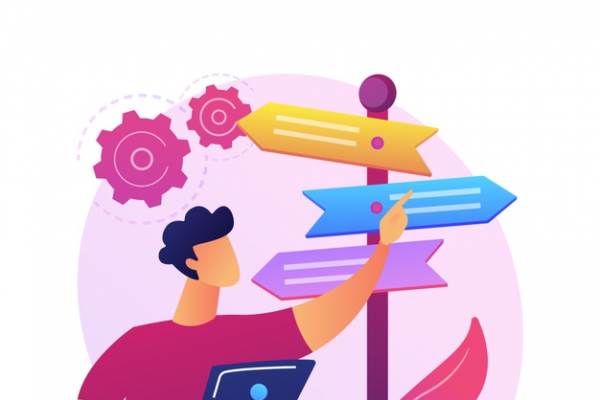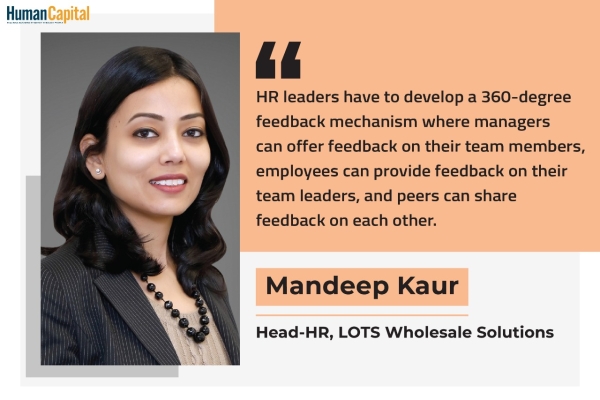Action bias makes us engage in frantic activity during crises when we are under incredible pressure to perform.
A few months back, my friend and I were rushing to get to an appointment. Upon reaching the main entrance of the building, we went to the nearest lift and pressed the call button. Within a few seconds, I frantically started pushing the already-lit call button. Then, when we got into the elevator, I kept hitting the tenth-floor button – I mean, like four times in around six seconds. My well-meaning friend told me that this would not make us move along faster. On hearing this, the other elevator occupant laughed and said, “I do this all the time! Too much, actually.”
I know that those extra button pushes do not make any difference but I can’t help it, especially when I’m in a hurry.
Many of us are particularly susceptible to action bias. When faced with a problem, we prefer doing something — anything — in order to feel like we have control over a situation. This happens even if the action is irrational, unwise or counterproductive.
“Woah! Action bias? But that’s a good thing! Taking action is what helps me get things done. It makes me productive,” I hear you say. Speed is essential to individual and business success today. Bias towards action is generally a good thing. Taking action implies not succumbing to “paralysis by overanalysis”. It encourages us to experiment. It also makes us see failure as an acceptable outcome, provided that we learn from it.
But, in the face of ambiguity and uncertainty, we often get restless and feel compelled to act. Many of us ignore the costs and default to action, regardless of whether it may provide zero or even negative effects.
Let me turn to soccer goalkeepers to show you what I mean. When defending a penalty stroke, the goalie has to choose a side before the player even kicks the ball. So, is it better to dive to the right or the left? Here’s the kicker (pun intended): Statistically, goalies are far better off staying put at the centre.
Despite this fact, a fascinating 2007 study found that goalkeepers almost always choose to dive to either side. Why? The answer might surprise you: It feels and looks better to have failed in stopping the ball by jumping in the wrong direction (action) rather than staying still in the intense situation of a penalty shootout (inaction). This is action bias — we want to look active, even if it achieves nothing or makes matters worse.
Action Bias and COVID-19
Action bias is pandemic to individuals and organisations. The COVID-19 crisis has made this even more explicit. Although it is true that staying at home is an easy task compared to defending our country in a war, hanging back did not turn out to be as easy as it seemed.
People around the world have been acting irrationally — be it the crowding of supermarkets to stock up on toilet paper or the continued breach of stay-at-home and social distancing directives. Such people have been popularly termed as "covidiots".
We prefer taking some action rather than passively sitting at home — even though restraint and patience are the best strategies right now — because we perceive that value can primarily be realised through action.
Think Before You Act
We have a tendency to think that people who do the most stuff produce more value. Such a conclusion couldn’t be further from the truth. Choosing to be a “busy” person when the situation is demanding is an easy way out; by contrast, becoming a “productive” person is challenging.
Action bias makes us engage in frantic activity during crises when we are under incredible pressure to perform.
Consider meetings, for instance. Since the pandemic struck, we have been spending more time than ever before collaborating with colleagues via meetings and conference calls, often across different time zones. Many of us are mindlessly participating in thousands of meetings in the name of “keeping up with change” when most of them merely philosophise on the issue at hand rather than solve it.
Action bias lures many of us to say yes to meetings we could easily skip. We don’t even ask ourselves why we are doing what we are doing. In ambiguous situations, we are tempted to fix problems, but defaulting to action could instead aggravate it and impede productivity. In other words, we sometimes have to think rather than act impulsively.
The next time you get invited to a meeting, don’t be afraid to pause for a while until you find the right action. Think: Is this meeting truly useful? Or am I attending this meeting for the sake of looking/feeling good? And if your answer is the latter, carefully reconsider your next steps. For example, could you just catch up on the post-meeting minutes? If both you and your team member have been invited to attend a meeting, could one of you forgo attending it?
Build In Time For Reflection
A few years back, a couple of Harvard researchers conducted a field experiment with Wipro, Bangalore. The employees put through call centre training were divided into two groups. One group continued to take technical training and practice calls as usual until the end of the work shift. The other group was asked to sit in silent reflection during the last fifteen minutes of every workday.
The result? The reflecting group performed significantly better after one month of training, despite the fact that the other group worked fifteen minutes longer every day.
We all have a lot of learning to do right now, and building in time to reflect rather than just act can improve performance and also build resilience.
Recent data from LinkedIn reveals that professionals are investing 130% more time on skilling/ reskilling/ upskilling since the COVID-19 outbreak. We will learn best when we create the room for it through inactivity. Spend at least fifteen minutes at the end of each day just reflecting on and journaling what you’ve learned.
Final Thoughts
Inaction is usually not looked upon favourably. However, thinking, pausing, reflecting, or simply restraining are all hard work. Just because no action is observed doesn’t mean that nothing significant is happening.
The adage “Don’t just stand there; do something!” could be changed to “Don’t just do something; stand there!” for specific situations.
References:
1. Action bias among elite soccer goalkeepers: The case of penalty kicks (Bar-Eli et al., 2007).
2. Reflecting on Work Improves Job Performance. HBS Working Knowledge. (2014).
Follow and connect with us on LinkedIn, Facebook, Instagram, Twitter for latest HR news and insights.
.jpg)
Do you look forward to permanently working from home after the pandemic subsides?
Trending
-
SBI General Insurance Launches Digital Health Campaign
-
CredR Rolls Out 'Life Happens' Leave For Its Employees
-
Meesho Announces 30-Week Gender-Neutral Parental Leave Policy
-
Microsoft Unveils Tech Resilience Curriculum To Foster An Inclusive Future
-
60% Indian Professionals Looking For Job Change Due To COVID: Survey
-
SpringPeople And Siemens Collaborate For Digital Transformation Push
-
86% Professionals Believe Hybrid Work Is Essential For Work Life Balance: Report
-
Almost 1 In Every 3 People's Personal Life Affected Due To Work Stress
-
Meesho Rolls Out Reset And Recharge Policy For Employees
-
80% Of Talent Leaders & Academics Say Pandemic Changed Skill Needs For Youth: Report
-
Hero Electric Rolls Out 'Hero Care' Program For Employees
-
Human Capital In Collaboration With ASSOCHAM Hosts Virtual Conference
-
IKEA India, Tata STRIVE Collaborate To Create Employability And Entrepreneurship Opportunities
-
SAP India, Microsoft Launch Tech Skilling Program for Young Women
-
DXC Technology, NASSCOM Collaborate For Employability Skills Program
-
Lenskart To Hire Over 2000 Employees Across India By 2022
-
Mindtree Launches Learn-and-Earn Program
-
Tata AIA Extends 'Raksha Ka Teeka' To Its Employees
-
Swadesh Behera Is The New CPO Of Titan
-
NetConnect Global Plans To Recruit 5000 Tech Professionals In India
-
Hubhopper Plans To Hire 60% Of Indian Podcasters By 2022
-
Corporate India Needs More Women In Leadership Roles: Report
-
Aon to Invest $30 Million and Create 10,000 Apprenticeships by 2030
-
Tech Mahindra Launches ‘Gift a Career’ Initiative for Upskilling of Youth
-
40% Women Prefer Flexible Working Options in Post-COVID World: Survey
-
3 out of 4 companies believe they can effectively hire employees virtually: Report
-
Vodafone , CGI and NASSCOM Foundation launch digital skills platform
-
Odisha: Bank, postal employees to deliver cash for elderly, differently-abled persons
-
Skill India launches AI-based digital platform for "Skilled Workforce"
-
Hiring activity declines 6.73% in first quarter: Survey
-
70% startups impacted by COVID-19 pandemic
-
Bajaj Allianz Life ropes in Santanu Banerjee as CHRO
-
Over 70 Percent MSMEs look at cutting jobs to sustain businesses
-
93 Per Cent employees stressed about returning to office post-lockdown
-
Johnson & Johnson India announces family benefits for same gender partners
-
Indian firms turning friendly towards working mothers
-
Welspun India names Rajendra Mehta as new CHRO
-
Wipro partners with NASSCOM to launch Future Skills platform



Human Capital is niche media organisation for HR and Corporate. Our aim is to create an outstanding user experience for all our clients, readers, employers and employees through inspiring, industry-leading content pieces in the form of case studies, analysis, expert reports, authored articles and blogs. We cover topics such as talent acquisition, learning and development, diversity and inclusion, leadership, compensation, recruitment and many more.
Subscribe Now












































Comment